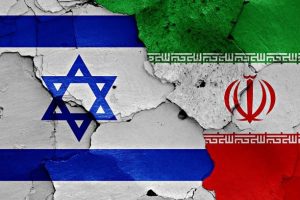
It is well recognized that Ethiopia is one of few ancient African countries admitted to the League of Nations and one of the founding members of the United Nations. During the Scramble for Africa, Ethiopia had maintained its full sovereignty over colonial powers and fought its foes and foreign aggressors. The country has been entertaining bilateral, trilateral and even multilateral relations with a number of nations of the globe since long back. The relationship between Ethiopia and the United States is one of the most strategic and consequential of the 21st century and this amicable relation has accounted for 120 years. The United States has supported Ethiopia to be a peaceful, stable, and prosperous nation.
Entertaining color blind diplomacy, Ethiopia has been enjoying reaping the fruits of diplomacy and amicable ties with a number of nations from east and west blocs. Ethiopia and United States of America have built strategic diplomatic relations over the last two decades plus. True, one of the most fruitful diplomatic relations of the twentieth first century, the diplomatic relations between the world’s biggest economy and the fastest growing economy in Africa, USA and Ethiopia respectively is gaining momentum.
The United States and Ethiopia commemorated 120 years of diplomatic relations in 2024 and share mutual interests in promoting peace, stability, and economic development. As the second most populous country in Africa and has a longstanding relations with the U.S., Ethiopia has hosted a number of American citizen residents and visitors, advanced mutual goals for regional stability, and represents an attractive market for U.S economic and commercial interests.
A sizeable United States-based Ethiopian Diaspora underpins dynamic people-to-people relations, too. The United States is committed to help Ethiopia address challenges and regain momentum for crucial reforms regarding a number of sectors.
As far as peace and security are concerned, Ethiopia has made positive strides towards peace, despite internal conflicts that continue to compromise its stability. Without a shadow of doubt thus Ethiopia and the United States have strong economic ties, and U.S. exports to Ethiopia are dominated by aircraft, aircraft engines, and parts; and Ethiopian exports to the United States feature coffee, garments, and leather and leather products. Ethiopia lost African Growth and Opportunity Act eligibility in January 2022 due to human rights concerns. Hopefully, such decisions would be reversed soon.
The U.S. Government remains committed to consolidate recent improvements through its bilateral assistance programs. For instance, its humanitarian agencies are working hard to support Ethiopia. The case of USAID can be cited a case in point as it is advancing democratic reforms, supporting civil society and media capacity, and strengthening judiciary capacity to improve the rule of law. USAID is also supporting human rights accountability and strengthening the capacity of human rights organizations. The over a century diplomatic journey between the two great countries has to be well reinvigorated and help them reap the bounties, benefits and diplomatic assets.
When United States of America establishes fruitful diplomatic relations with many African countries, it has given due emphasis to its national interest, and so does Ethiopia. The foreign policy model put in place by the former leaders has born fruits, indeed!
Since the inception of their diplomatic ties, the two sides have been discussing bilateral and regional issues of common interest, as well as people-to-people bond in areas such as investment and trade. The firm link between the two countries will further promote the enduring diplomatic relationship between the United States and Ethiopia.
Needless to state, bilateral diplomacy works with individual foreign states on a variety of topics to further one’s own domestic and international goals. Recognizing differences and taking prompt action to minimize possible problems are crucial. Security is the first concern of each state, and it is at the foundation of foreign policy. Besides, bilateral relations are essential diplomatic ties between two countries, shaping their political, economic, political and even cultural interactions. These relationships facilitate trade, foster peace, and encourage mutual understanding on a global scale. Cognizant of the fact that understanding the complexities and benefits of bilateral relations is key to grasping international diplomacy, Ethiopia and US have further bolstered their diplomacy aiming at enhancing mutual benefits through international relations and concords.
It is also well recognized that diplomacy is the established method of influencing the decisions and behavior of foreign governments and people through dialog, negotiation, and other lucrative mans devoid of violence and war. Truly speaking, modern diplomatic practices are a product of civility and transformation. Historically, diplomacy is meant to the conduct of official, usually bilateral, dealings between two sovereign nations.
Since the nature of diplomacy, its history, and the ways in which modern diplomacy is conducted, including the selection and training of diplomats and the organization of diplomatic bodies needs scrupulous approach, countries do carry out careful dealings in their reach.
Unequivocally, diplomacy is the chief, but not the only, instrument of foreign policy, which is set by political leaders, though diplomats may advise them. Foreign policy establishes goals, prescribes strategies, and sets the broad tactics to be used in their accomplishment. Using the diplomatic they have been employing so far, Ethiopia and the United States of America have garnered myriads of benefits. The two countries have also been strengthening their relations and undertaking a lot of activities revolving around social, economic, political even cultural spheres.
Yes, diplomacy normally seeks to develop goodwill toward the state it represents, nurturing relations with foreign states and peoples that will ensure their cooperation; hence it has to be well nurtured. The wise use of diplomats is a key to successful foreign policy, indeed!
The U.S. had a renewed interest in the region, and the Ethiopian government needed diplomatic, political, and economic assistance. After 1991, the new regime declared a democratic style of governance, adopted a constitution that enshrined fundamental human rights and promised free, fair, and periodic elections.
Despite being one of the world’s underdeveloped nations and a landlocked country, Ethiopia has been said to have many facets to attract other to be allies and to be an attractive partner for the U.S.
Geographically, as a large country that borders all the other countries in the Horn of Africa, Ethiopia contributes to the stability—or instability—of the entire region. As an anchor state, Ethiopia also commands great influence, either negatively or positively.
Ethiopia also has a strong military tradition and institutions that make it a dependable security partner for many countries. True, from its strategic geographical location, Ethiopia can serve as an important base for military operations to collect intelligence information and conduct security operations throughout the region, and the U.S. is likely very much aware of the solid military and security cooperation Ethiopia can deliver.
As a result, the U.S. has no alternative but to cooperate with the Ethiopian government to ensure peace and stability in the region. In terms of political leverage, Ethiopia has built a highly respectable position both continentally and internationally from which U.S. policy makers can draw support to buttress their security interest not only regionally, but also globally.
Interestingly, the Embassy of United States (U.S.) opened a photo exhibition depicting its 120th years of diplomatic journey in Ethiopia at the National Museum to portray the longstanding relations it has had with this great and ancient nation—Ethiopia. Yes, the cultural and people-to-people ties between Ethiopia and the U.S. are growing from time to time. Besides, the photo exhibition showcased captivating images that captured key moments in the long, thriving relations of Ethiopia and the U.S. plus to this, the increasing number of the Ethiopian Diaspora in the U.S. is playing a key role in nurturing the cultural and people to people relations between our two countries, no doubt. As stetted time and again, Ethiopia is the closest allies of the U.S in sub-Sahara Africa, and the two sides work together in diverse areas of cooperation including economic development, security, health care and education, among others.
It is also well recognized that Ethiopia remains committed to fortify the bilateral or multilateral or you name it with the countries which would like to see its progress and development following a win-win approach.
Basically, the Addis Ababa’s political stability would undoubtedly be important to Washington as the country has had a long-standing diplomatic partner and a major destination for USA investment in the East African region.
Not only is Washington interested in protecting its economic investments, but the close relationship with Addis Ababa has quickly made Ethiopia a diplomatic hub.
It is worth remembering that Ethiopia has been in the driver’s seat to come up with sustainable diplomatic efforts and trajectories.
As Ethiopia and USA have enjoyed 120 years of diplomatic relations, the two countries had long history of contacts, and Ethiopia and US enjoy excellent relations, and this is due to the convergence of interest between the two sides. The Ethiopian government places economic diplomacy at the helm of its foreign policy.
True, US-Africa relations, as a strategic partnership to build a fair International Political and Economic Order, would be a reliable means to bring about change in all aspects.
US, as one of the most important development partners of Ethiopia, needs to respect interest on extending its assistance.
In 1957, the relationships between the U.S. and Ethiopia were stained when the U.S. government announced that Washington would provide financial assistance to Egypt, Ethiopia’s traditional enemy, to build the Aswan Dam.
Regular exchange of high level political visits has provided sustained momentum to bilateral cooperation. Today, the Ethio- U.S. bilateral cooperation is broad-based and multi-sectoral, covering trade and investment, defense and security, education, science and technology, cyber security, high-technology, civil nuclear energy, space technology and applications, clean energy, environment, agriculture and health. Vibrant people-to-people interaction and support across the political spectrum in both countries nurture there bilateral relationship. Regular exchange of high level political visits has provided sustained momentum to bilateral cooperation, while the wide-ranging and ever-expanding dialogue architecture has established a long-term framework for Ethio-U.S. rendezvous.
Editor’s Note: The views entertained in this article do not necessarily reflectthe stance of The Ethiopian Herald
BY MENGESHA AMARE
The Ethiopian herald May 11/2024




